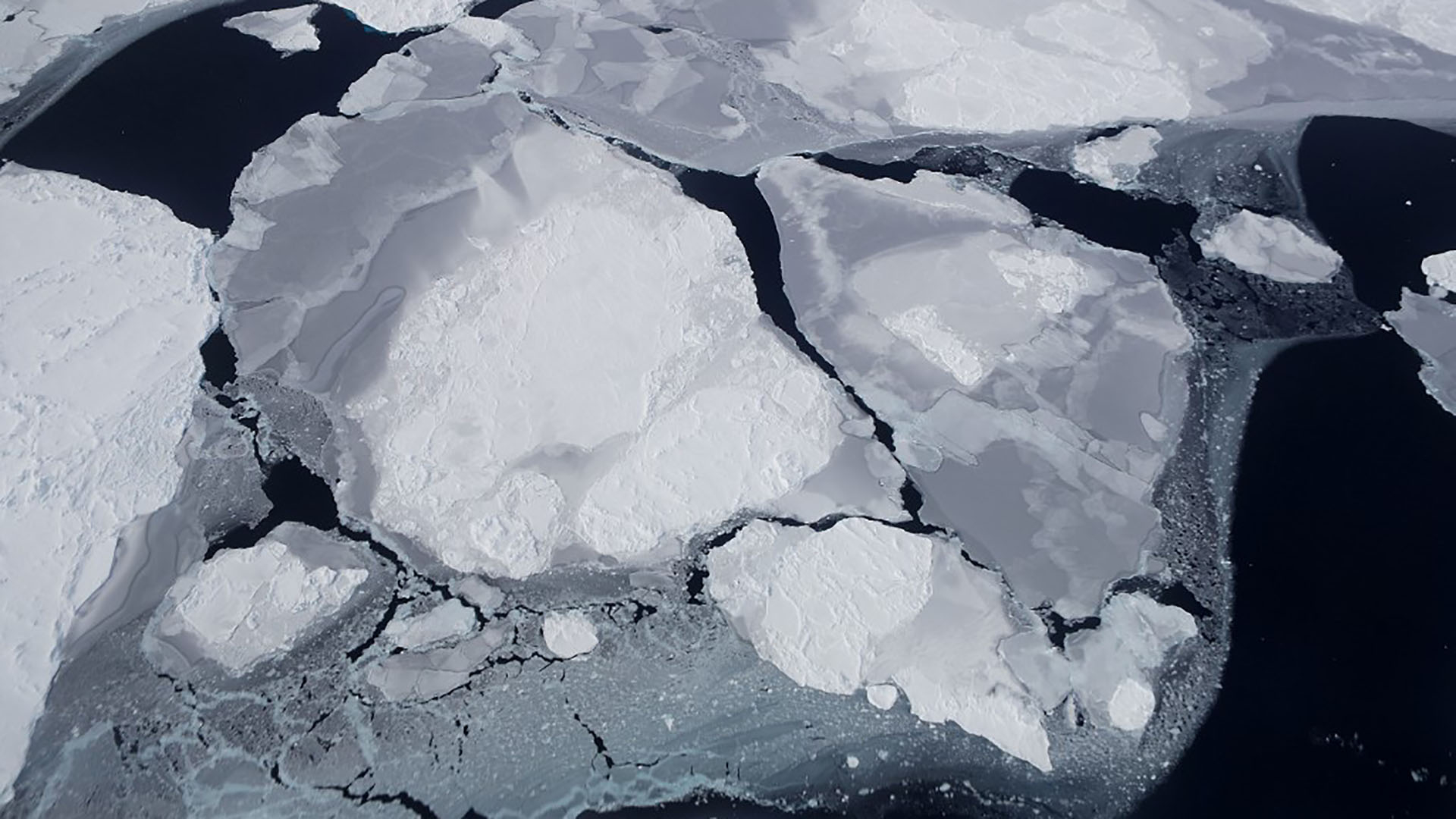
In this file photo taken on November 02, 2017 Sea ice is viewed aboard NASA's research aircraft in the Antarctic Peninsula region, above Antarctica. (MARIO TAMA / GETTY IMAGES NORTH AMERICA / AFP)
In this file photo taken on November 02, 2017 Sea ice is viewed aboard NASA's research aircraft in the Antarctic Peninsula region, above Antarctica. (MARIO TAMA / GETTY IMAGES NORTH AMERICA / AFP)
The National Oceanic and Atmospheric Administration released its annual Arctic Report Card Tuesday, outlining the ongoing threat that global warming has on the region's environment and communities.
The report blames the persistent warming of the surface air temperature as the driver for changes in ecosystems.
"At +1.9 degrees Celsius (35 degrees Fahrenheit), the annually-averaged land-based surface air temperature anomaly for October 2018 – September 2019 is the second-highest value (after 2015/16) since 1900,” the report said.
Arctic sea ice continues to retreat, with its thickness also decreasing. The report cites thinning ice as contributing to warming ocean temperatures.
Likewise, Greenland has been losing much of its ice sheet, with 2019 rivaling record amounts lost in 2012. The report found the melting beginning earlier than usual and reaching 95 percent of the surface.
As climate change threatens the ecosystems of the Arctic, researchers also report that indigenous communities living in the Bering Sea region are finding their way of life at risk.
The report quotes indigenous elders speaking on warming Arctic conditions, saying access to their subsistence foods is shrinking and that it's becoming more hazardous to hunt and fish.